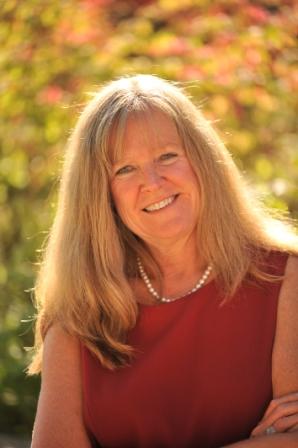Women Engineering Deans: Dr. Candis Claiborn

Meet Dr. Candis Claiborn – Dean at Washington State University’s College of Engineering and Architecture

Dr Candis Claiborn
Dr. Candis Claiborn has been Dean of the College of Engineering and Architecture since 2006 and is one of just a few women engineering deans in the U.S. As dean, she has contributed to the growth of the college through several successful initiatives. She is a co-Principal investigator on a $3.75 million, NSF ADVANCE grant that aims to increase representation and advancement of faculty women in science, technology, engineering, and mathematics. The grant is developing new strategies for faculty recruitment, retention, and advancement. She is also principal investigator on a Department of Education grant to establish a program for recruitment, promotion, and advancement of women in science and engineering. During her tenure as dean, several scholarships for women in engineering fields have been established.
Dr. Claiborn joined the WSU faculty in 1991 and is a well-known researcher in the area of air quality. She served as the college’s associate dean of research and graduate programs from 2002 to 2005. At WSU, she has collaborated with researchers in the Laboratory for Atmospheric Research to study atmospheric-biospheric interactions of trace gases. She also developed a research program in atmospheric aerosols, in which she collaborates with colleagues in the Laboratory for Atmospheric Research, as well as others in the School of Public Health at the University of Washington, the Chemistry Department at Eastern Washington University, and Lawrence Berkeley National Laboratory.
Dr. Claiborn has received several teaching awards in her department, including Outstanding Teaching Faculty in Civil Engineering in 1994, the Leon Luck Faculty Award for the Most Effective Professor in Civil and Environmental Engineering in 1998, the Outstanding Teaching Faculty in Civil Engineering in 1999 and the Richard Crain Faculty Award for Distinction in Ethics Teaching in 2003.
Dr. Claiborn received her B.S. in Chemical Engineering from the University of Idaho in 1980. After graduation, she worked in the petroleum industry for Chevron and then for Atlantic Richfield Corporation. She returned to college at North Carolina State University, where she received her Ph.D. in Chemical Engineering.
1. Why are engineers integral to the American economy and infrastructure? What would happen without them?
On the American Economy:
The vibrancy of our economy is dependent on the quality of jobs and its continuing potential for sustained and steady growth. Engineers innovate and create the next generation of technologies that drive economic growth. They design and then improve our infrastructure – our roads, bridges, highways, even the information highway – to enable the economy to grow. Without engineers, our manufacturing, electronics, information, health care, and other sectors of the economy would falter – innovation would slow, and our nation’s competitiveness would suffer.
2. Do you believe modern engineers are more important to technological innovation or infrastructure? Why?
That’s a difficult question – modern engineers are equally important to both, and both are equally important to economic well-being and competitiveness.
3. How has the job market changed through the Great Recession for the engineering sector?
During the Great Recession, there was a dip in demand for engineers and computer scientists, however jobs were still available and our graduates were able to land good jobs. You have to realize that the decrease in jobs was a dip from very high demand to demand! I believe engineering is, was, and remains a great career path with lots of opportunities for students that are willing to work hard.
4. Which engineering disciplines are most in demand in the market?
That is somewhat regional. In this region of the country, there is especially high demand for computer scientists and engineers. Mechanical and electrical engineers are perennially in high demand here as well. I don’t mean to imply, however, that some of our disciplines are in low demand – there are good jobs for engineers of all disciplines!
5. Which engineering careers do most students move into?
Most students go to work for large corporations in microelectronics, aerospace, power, computer science, energy processing, and construction. A typical entry level job might be as a project engineer or process engineer.
6. Why do you think high school students should study engineering?
High school students need to take advantage of their opportunities by taking as much math and science as possible. Then, if they have room in their curriculum, and engineering or computer science courses are available, they might consider taking them.
7. What does Washington State University specialize in in regards to engineering?
We pride ourselves in offering an undergraduate experience with lots of hands-on opportunities, and for those students who take advantage of those opportunities, our vision is to prepare them to be work-ready, from day one. Undergraduate research opportunities are available so our students are able to work in a face-to-face environment with some of the greatest engineers and computer scientists in the country. Outside of the classroom, our active student clubs provide leadership opportunity as well as creative outlet!
8. Why should students apply to Washington State University?
We offer a world-class education in a residential environment. Our faculty is engaged in state-of-the-art research that enables a vibrant setting, yet our programs retain a face-to-face feel. It’s the best of all worlds, in my opinion!
Add a comment